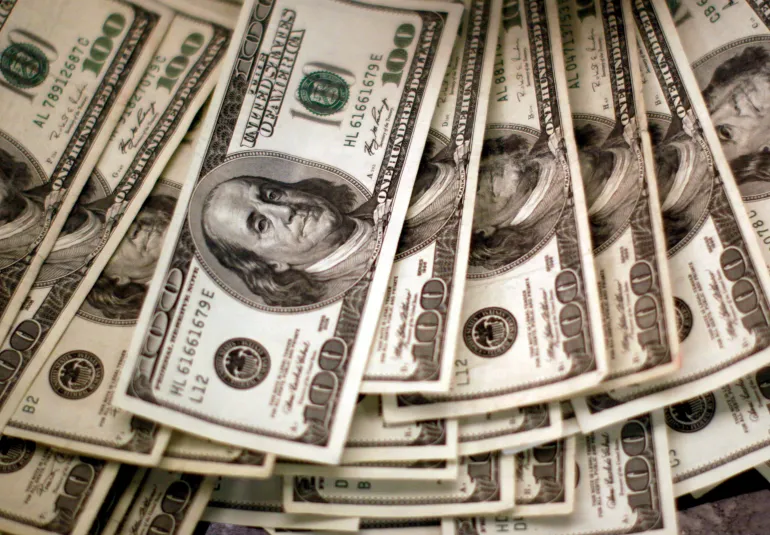In April 2025, the Ghanaian Cedi posted an impressive performance, demonstrating notable resilience against the US dollar and other major currencies.
According to data from the retail forex market, the cedi appreciated by 5.3% against the US dollar in April alone, contributing to a cumulative 7.44% gain year-to-date (YTD). This marks a significant turnaround in market sentiment and a rare period of stability for Ghana’s local currency amid global economic pressures.
This strong showing by the cedi is largely attributed to a combination of strategic actions taken by the Bank of Ghana (BoG) and key structural moves by the government to bolster foreign exchange (FX) availability and reduce dependency on the dollar.
A major catalyst behind the cedi’s rise was the Bank of Ghana’s decision to inject US$490 million into the forex market in April. This intervention eased the persistent demand pressures on the dollar, effectively stabilizing the supply-demand dynamics of the currency market.
The central bank’s targeted supply-side actions are part of a broader effort to restore investor confidence, manage inflationary expectations, and protect the external value of the cedi. According to market analysts, this sizeable injection not only provided short-term relief but also signaled the BoG’s commitment to ensuring forex market stability through strategic liquidity management.
Government Strikes Gold Deal to Cut FX Outflows
In a complementary move to the BoG’s intervention, the Ghana Gold Board (Goldbod) secured a groundbreaking agreement with nine major mining firms operating in the country. Under the terms of the agreement, the government will purchase 20% of the companies’ estimated monthly gold production—approximately 200 kilograms—before export.
What makes this deal significant is the payment structure. Rather than paying in US dollars, the government will settle the gold purchases using the Ghanaian cedi. This strategy aims to preserve foreign exchange reserves by reducing dollar-denominated obligations while simultaneously building the country’s strategic gold reserves.
Experts believe that this initiative could be a game changer in Ghana’s long-term bid to strengthen its currency and reduce reliance on external borrowing. By converting part of the country’s gold exports into a local currency transaction, the burden on the FX reserve is significantly lessened.
While the cedi’s performance against the US dollar was the headline story, it also posted gains against the British pound and remained relatively stable against the euro. The local unit appreciated by 0.71% against the pound in April, bringing its YTD gain to 0.79%.
Against the euro, the cedi recorded a marginal slip of 0.3% month-on-month. However, this was an improvement compared to earlier in the year, narrowing the cedi’s YTD depreciation against the euro to 1.83%. The subdued volatility reflects a more balanced and resilient local currency environment.
Analysts Optimistic About Cedi Outlook
Leading market watchers, including Databank Research, have expressed optimism about the cedi’s prospects in the coming months. In a recent note, Databank stated: “We believe this is a positive move to help shore up Ghana’s gold reserve and help strengthen the Ghana Cedi in May 2025. Additionally, we expect the central bank’s targeted intervention to help stabilise the unit. As such, we expect the Ghana Cedi to remain strong this week.”
This sentiment is shared across the financial sector, where confidence in the government’s proactive currency management policies is growing.
As Ghana looks ahead, sustaining the cedi’s strength will depend on continued policy discipline, robust FX inflows, and maintaining macroeconomic stability. The gold purchase deal represents a strategic shift in how the country leverages its natural resources to support monetary stability.
If well implemented and expanded, this model could serve as a blueprint for other resource-rich economies facing similar currency vulnerabilities. The combination of targeted central bank interventions and resource-backed strategies could provide a stable path for the cedi and help position Ghana as a resilient economy in West Africa.
In the short term, all eyes will be on the effectiveness of these initiatives and how external factors such as global commodity prices and interest rate movements influence the cedi’s trajectory. For now, however, Ghana’s currency is enjoying a well-earned period of strength—and policymakers are being lauded for their decisive actions.
READ ALSO: Government Considers ‘Multiple Lease Model’ for ECG’s Privatization




















